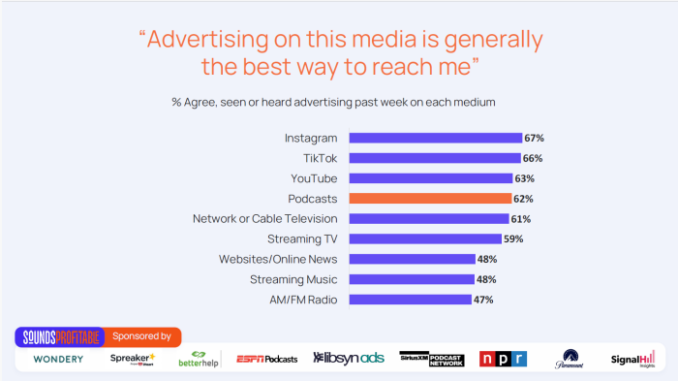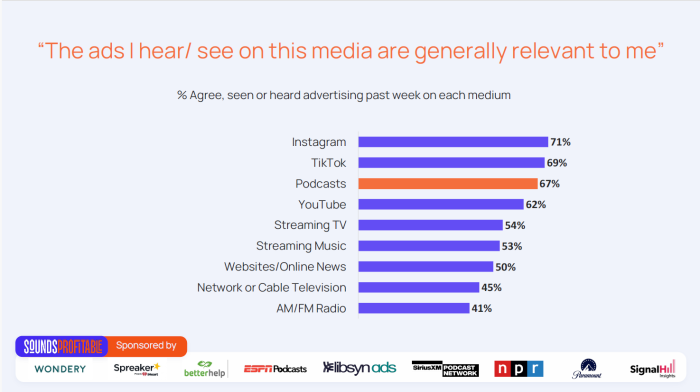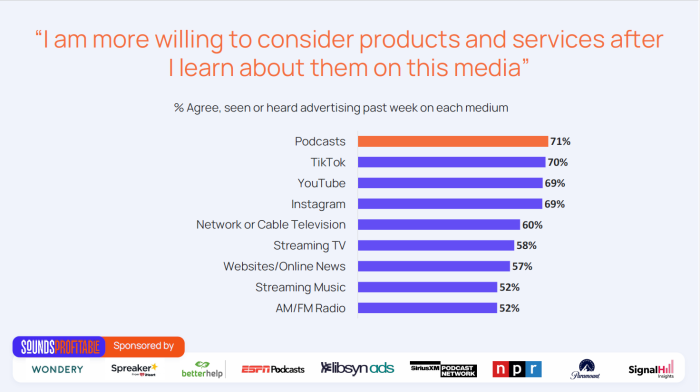
The Ad Bargain, a consumer study of more than 2000 Americans aged 18+ by Sounds Profitable, have looked at on the effectiveness of ad spends across TV, radio, podcasts and this year with an additional focus on YouTube and streaming CTV.
The results largely show that the latter three, particularly podcast advertising, leads consumers to feel more positive about brands due to an ability to see the link between audio product creator support and the ads within.
Tom Webster left Edison Research two years ago to partner with Bryan Barletta at Sounds Profitable.
Webster said at the time:
“Ultimately, Bryan and I have a shared vision to improve podcasting by tirelessly advocating for transparency, access, inclusion, and fair play. We want podcasts to be measured accurately and consistently.
“We want the core fundamentals of the podcast business to be available to anyone who wants to learn them. We want creators and executives at the highest levels in podcasting to be as diverse as the incredible audience for podcasting. And we want podcasting companies and independents alike to be able to profit from their efforts in a fair marketplace.”
The study yielded insights similar to one former CADA GM Emily Copeland conducted prior to the DAB+ station’s launch which she spoke of at this year’s Radiodays Europe convention. It also show how our feelings towards advertising and platforms we are most receptive to hearing branded messages from have changed.
The Ad Bargain study showed Instagram is on top when asked, “Advertising on this media is generally the best way to reach me”. Radio is 20% behind Instagram and TikTok.
Then, when you look at the relevance of the advertising to the consumer on each platform again Instagram is on top, with podcasting not far behind. This time the gap between Insta and radio is 30%.

Most relevant to potential audio advertising is the next result of when the study participants were asked their willingness to consider a product or service when advertised on a certain platform. Podcasting led this, closely followed again by Instagram, YouTube and TikTok. Radio was around 50%.

Further questions show that podcast listeners are more willing to purchase a product or service on a podcast because of reasons including:
- Podcasts do not feel inundated with ads
- Podcast ads, due to the above, are less objectionable
- Listeners feel that by doing so they support the podcasts’ creators
- There is some sense that podcasts protect a listener’s privacy more than YouTube or streamed TV advertising
- They might go out of their way to support a product or service that similarly supports their favourite podcast
The fully study can be found here. It does appear that currently the balance between content, advertising, consumers and creators is largely working for podcasting.
